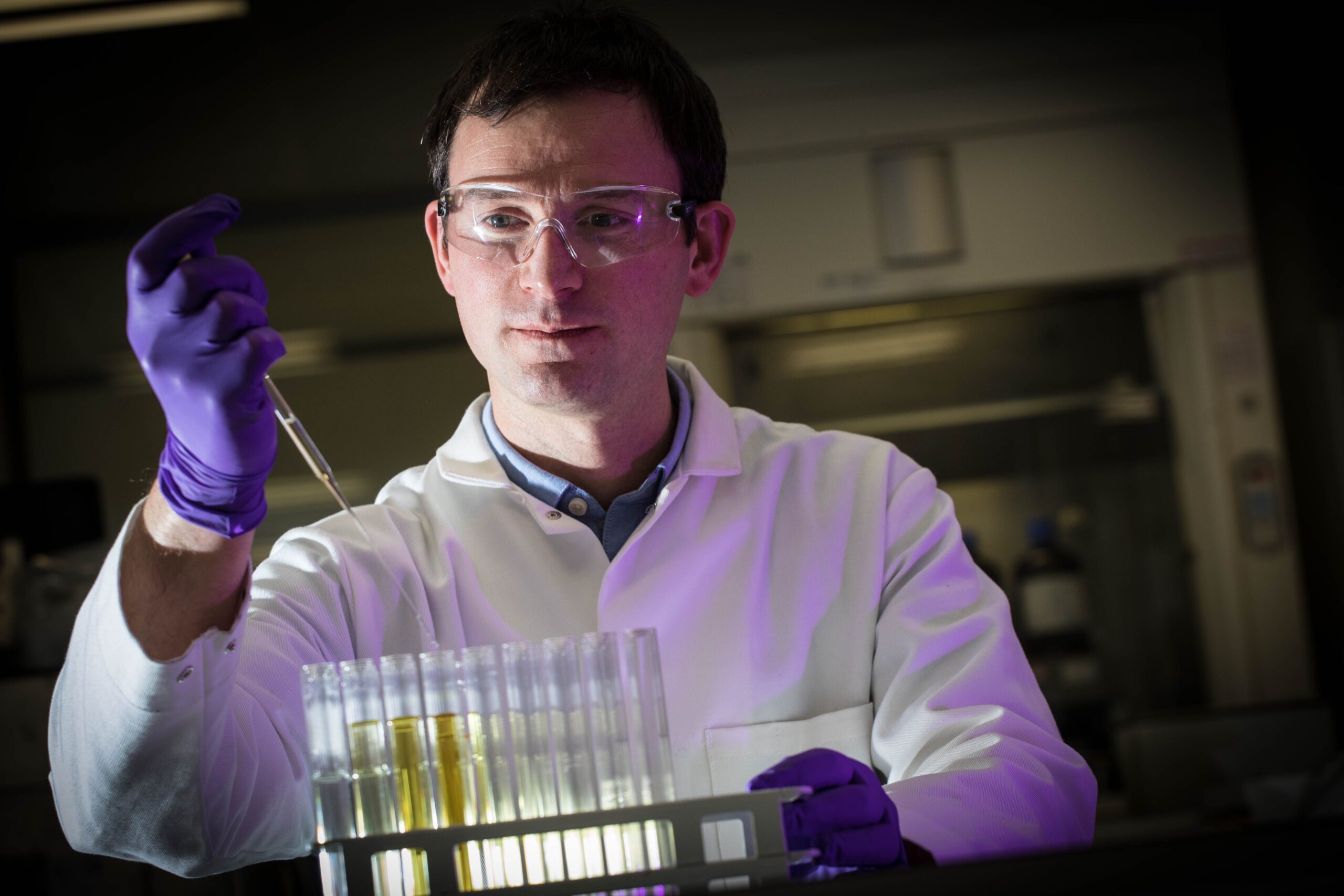- Find our latest Case Studies
- Our Platforms
UTI superbugs tackled by Infex team

Research into a new treatment to tackle hospital-associated infections caused by drug-resistant Gram-negative bacteria is progressing well at Infex Therapeutics, one of the iiCON Consortium partners.
The World Health Organisation has identified drug-resistant Gram-negative bacteria as critical priority for antimicrobial resistance (AMR) research.
Some 5 million deaths annually are now associated with bacterial AMR worldwide, with drug-resistant Escherichia coli (Ec) and Klebsiella pneumonia (Kp) listed as the number one and number three killers, according to a report published in The Lancet in January 2022.
One of the major concerns is that Carbapenem antibiotics have become a vital tool in the fight against multi-drug resistant infections and the use of these important drugs is now being undermined through new resistance mechanisms.
The Infex program, known as MET-X, is currently being evaluated ahead of potential clinical trials at the Royal Liverpool Hospital. MET-X is a novel therapy designed to help restore the function of antibiotics that have become ineffective due to drug resistance created by bacterial enzymes known as metallo-β-lactamases (MBLs) which break down β-lactam antibiotics, including carbapenems.
MBL enzymes effectively destroy carbapenem antibiotics before they can kill the bacteria and, worryingly, this resistance mechanism is easily transferable from one species of bacteria to another. The spread of MBL enzymes has the potential to greatly diminish the number of treatment options for organisms such as Ec and Kp.
There is no current effective treatment available for carbapenem-resistant MBL infections other than the ‘last line of defence’ drugs tigecycline and colistin, both of which have significant adverse side effects, restricting use to the most critically ill patients.
The early results achieved by Infex Therapeutics’ MET-X program represent much needed progress. Infex’s scientists have developed a “best in class” broad-spectrum MBL inhibitor, capable of restoring carbapenem activity in otherwise resistant bacteria.
In a panel of 484 globally-sourced MBL carrying strains, Infex’s preclinical candidate compound was shown to greatly improve carbapenem efficacy, outperforming other potential drugs currently being considered for the treatment of infections caused by β-lactamase producing organisms. This restorative ability has also been demonstrated in in vivo infection models in mice.
With safety screening, stability and Good Laboratory Practice (GLP) toxicity testing underway the target is for the project to enter first-in-human Phase 1 clinical trials early in 2023.
Dr Peter Jackson, executive director, Infex Therapeutics, which is based at Alderley Park, said:
“The preclinical results for MET-X were very encouraging. MET-X is our first MBL inhibitor and our work to date suggests it can live up to its promise as the most effective broad-spectrum therapy against the emerging class of superbugs.
“There are alarming reports from individual countries and regions that MBL infections are endemic in large areas of Asia, Africa and Eastern Europe, and rising elsewhere. In the UK, the number of MBL clinical samples reported to Public Health England rose exponentially from zero in 2008 to over 1,200 in 2018.”
Professor Janet Hemingway, iiCON’s director, said:
“Drug-resistant Gram-negative bacteria are a huge concern and the work the Infex team are producing may rearm one of the most effective class of antibiotics we have to control the risk these infections pose to people.”


